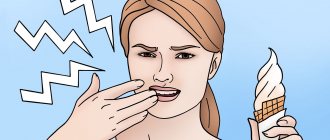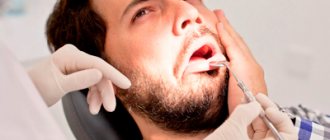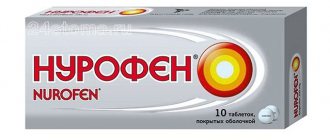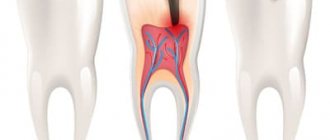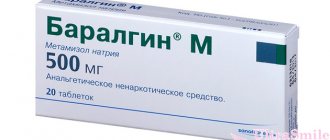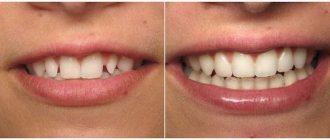Clove Oil: Benefits, Side Effects
Clove oil has many uses, from relieving pain and improving circulation to reducing inflammation and fighting acne.
Clove oil is especially effective for oral problems such as toothache. Even popular toothpaste brands like Colgate agree that the oil has amazing properties that can protect your teeth, gums, and overall mouth.
Clove oil can act as a natural remedy for inflammation and pain. In addition, it has antimicrobial and cleansing effects.
Causes of acute dental pain
The following are the root causes of acute toothache:
- Caries. Exacerbation of dentalgia causes food to get into the inflamed area. The sensations are characterized as aching, wave-like.
- Periodontitis (inflammation of the gums) . Manifested by throbbing pain. The patient observes tooth instability, which is associated with the looseness of the inflamed gum tissue.
- Violation of the integrity of the enamel . The condition causes mechanical damage to the jaw (teeth), long-term lack of treatment for caries. Several hours may pass from the moment the defect appears to the first pain.
- Pulpitis. It manifests itself as intense pain that does not respond to the analgesics taken. The wave-like nature of the unpleasant sensation is explained by the transition of caries to the pulp, which is supplied with a large number of nerve fibers. The pain covers the ear, adjacent teeth, and spreads to the temple.
- Periodontitis. The pathology is caused by mechanical damage to the tooth and is characterized by an inflammatory process of the periosteum ligaments. These structures help hold the tooth inside the socket. Manifests itself with sudden, sharp pain. Against the background of infection, a cystic neoplasm or granuloma forms inside the periosteum.
Each of these conditions needs to be treated. If the patient does not want to see a doctor, the risk of complications increases. These include: osteomyelitis (destruction of bone tissue), abscess, phlegmon (pathologies mean massive suppuration of the gums and tooth sockets).
Non-dental reasons
The doctor’s task when treating a patient with pain is to establish that it was dental problems that caused the deterioration in health. For this purpose, the specialist conducts differential diagnostics. The doctor compares and then excludes other diseases that manifest symptoms similar to dentalgia.
The specialist will have to make sure that there are no pathologies of the neurological, cardiovascular system, or ENT organs. These diseases include:
- Neuralgia . The trigeminal nerve is present in the human body. The structure provides sensitivity to the face and oral cavity. With inflammatory damage to the trigeminal nerve, the patient experiences intense pain. Clinical manifestations are complemented by irritability, swelling of the cheeks, and lacrimation. Standard analgesics are practically ineffective, and when they reduce discomfort, the result does not last long. Inflammation of the trigeminal nerve is treated by a neurologist. An experienced dentist is able to immediately determine that the disease does not apply to his profile.
- Migraine . The headache is characterized by unilateral localization. The patient's general well-being worsens from loud sounds and bright lights. The location of pain can migrate - cover the temporal, parietal region. Debilitating discomfort spreads to the orbit and frontal part. When the condition is left untreated for a long time, standard analgesics do not have the expected effect. Then the intensity increases, and the patient mistakenly perceives the headache as a toothache.
- Otitis. Inflammation of the ear canal most often occurs in children, but also occurs among adults. Clinical manifestations of the disease are hearing loss, throbbing pain on one side of the head. An unpleasant sensation spreads to the lower jaw.
- Violation of the functional ability of the heart (angina pectoris, myocardial infarction). Pain syndrome is predominant in this case. An unpleasant (burning, pulsating) sensation spreads to the left shoulder blade, shoulder, and lower jaw. If the heart rhythm is disturbed, the patient notes pain in the lower jaw. This becomes a reason to suspect problems with the condition of the teeth. In the process of performing diagnostics, the doctor focuses on the clinical picture and examination results. To determine the cause of dentalgia, a person seeking help will have to undergo several diagnostic procedures.
Toothache with sinusitis
When a patient presents with acute toothache, the doctor should rule out sinusitis – inflammation of the maxillary sinuses. Discomfort in the jaw is similar in both diseases. In case of sinusitis, the patient is concerned about:
- The presence of copious mucous discharge from the nose.
- The wavy nature of the pain, its localization in addition to the jaw - the forehead, with a transition to the area under the eyes.
- Increase in body temperature to high levels.
- Sore throat, irritation inside the throat, difficulty swallowing.
- Weakness, dizziness, apathy, dyspeptic disorders (nausea, vomiting, lack of appetite).
It is important that with sinusitis the deterioration of the condition develops against the background or after a cold. Treatment of the disease in question is carried out by an ENT doctor.
Tested methods:
- For toothache. Consists of two ingredients. The first tincture - in a ratio of 1 to 5, pour vodka over the root of calamus and leave to infuse for 10 days. The second tincture is 15 grams of propolis (which needs to be crushed) per 100 grams of vodka. It also infuses for 10 days. Both tinctures must be stored in a cool, dark place. Usage – take one tablespoon of calamus (tincture) and half a tablespoon of propolis (tincture), mix and rinse your mouth with the resulting mixture for 10 minutes. After rinsing, the mixture must be spat out.
- One of the most terrible types of toothache is crown pain. It is impossible to solve the problem by direct influence - there is no access, and time drags on slowly. The recipe for the solution is simple - you need to mix a teaspoon of soda and extremely finely ground table salt, and brush your teeth with this powder 3 times a day. However, it is necessary to rinse your mouth after brushing only after 10 minutes.
Back
General recommendations for pain relief
The following tips will help relieve tooth pain:
- Do not concentrate on feeling unwell, try to distract your thoughts from it.
- Make sure that the disturbing part of the mouth is not clogged with food fragments. In addition to putting pressure on the inflamed area, pieces of food create a favorable environment for the life of pathogenic microflora. It is advisable to use a toothpick.
- The horizontal position aggravates the condition due to increased blood flow to the jaw. For dental problems, it is better to minimize bed rest (with the exception of high body temperature).
- Limit contact of food with the inflamed area of the mouth. When chewing food, try to use the healthy side.
- It is equally important to abandon the idea of using heat sources. High temperatures relieve discomfort for a short time. Heat can aggravate the inflammatory process if it is accompanied by the formation of a purulent focus.
Tincture of calamus and propolis.
Tinctures must be prepared in advance and not mixed before use. The first tincture - in a ratio of 1 to 5, pour vodka over the root of calamus and leave to infuse for 10 days. The second tincture is also based on vodka. You need 15 grams of propolis (which needs to be crushed) per 100 grams of vodka. It also infuses for 10 days. Both tinctures must be stored in a cool, dark place.
Tinctures are used as follows: take one tablespoon of calamus (tincture) and half a tablespoon of propolis (tincture), stir and rinse your mouth with the resulting mixture for 10 minutes. After rinsing, the mixture must be spat out.
How to relieve acute toothache
There is a wide range of means and methods that can be used to get rid of or minimize tooth pain. All of them are divided into main and auxiliary methods and are related to official or folk medicine. Modern analgesics are aimed at eliminating pain of various types, localization, and degrees of intensity. An insufficiently pronounced analgesic effect provides:
- Nurofen . Contains Ibuprofen, a non-steroidal anti-inflammatory substance.
- Spasmalgon. The drug is made on the basis of Analgin. The drug is contraindicated for use in children under 6 years of age.
- Baralgin. Analgin produces an analgesic effect. Dosed use is acceptable even for dentalgia in children.
- Askofen . Relieves debilitating sensations due to the presence of powerful substances in the combination. They are represented by Paracetamol, Aspirin and Caffeine. Contraindicated in children under 15 years of age.
- Grippostad. The active ingredients of the drug are Paracetamol and vitamin C. Ascorbic acid prolongs the analgesic effect of the drug. The use of the drug requires a high level of care and caution.
- Actasulide. An effective medicine that provides relief from pain, but the patient’s age under 12 years is a limiting factor. Direct contraindications for use are the presence of stomach ulcers, duodenal ulcers, kidney failure, liver failure; impairment of the functional ability of the heart.
- Nise. Eliminates dentalgia in 5-7 minutes. The effect lasts for 6-8 hours, but the root cause of the unpleasant sensation is of decisive importance. Taking several tablets at once is neither practical nor safe. To achieve the desired effect, just take 1 Nise tablet with water.
- Ketorol. A powerful pain reliever, but you can take it no more than once every 3 hours. Before visiting the dentist, you should refrain from using Ketorol for at least 4-5 hours. Since the drug negatively affects the possibility and duration of anesthesia, it distorts clinical manifestations.
- Tempalgin . Eliminates low-intensity dentalgia. The permissible frequency of use is 4 times a day, 1 tablet. Before using any of the listed drugs, it is important to read the accompanying instructions.
The use of the medicine will not cause harm if the patient is not allergic to its active substances. In order to determine sensitivity to the drug, you should initially take ¼ of the tablet and monitor how you feel.
If after half an hour there is no dizziness, nausea, itchy skin, lacrimation, or shortness of breath, you can take the rest of the tablet. Then the expected analgesic effect occurs, and the patient knows for sure that the drug is safe for him.
How oil works
How exactly does clove oil fight infection? Dentists and scientists say this happens because:
- Eugenol is a natural anesthetic and has anti-inflammatory properties. It helps relieve swelling and irritation on the gums, reducing discomfort.
- Thanks to its high concentration of antioxidants and eugenol, cloves can protect against the effects of free radicals.
- Clove oil slows down the action of gram-negative and gram-positive bacteria, as well as yeast. This is very important given the fact that gram-negative bacteria are often resistant to antibiotics and other antibacterial drugs.
- In terms of skin, clove supports tissue remodeling and protects dermal fibroblasts from damage. In addition, when used externally, it has an anti-cancer effect.
- According to some studies, a number of active components in cloves, including acetyl eugenol, also have a therapeutic effect. Acetyl eugenol appears to be a “potent platelet inhibitor” in human blood cells. This means that it prevents platelets in the blood from sticking together, which can lead to the formation of blood clots. Cloves are known to act as a natural blood thinner, so clove oil is not recommended for use with other traditional blood thinners.
Additional recommendations for pain management
Ketorol, Pentalgin, Ketanov, Nimesulide have a high analgesic effect. Despite the guaranteed analgesic effect, these medications should not be taken by pregnant women and children. The active components of analgesics easily cross the placental barrier and can harm the fetus. As for children, a more careful, accurate calculation of the dosage of the drug is required. You will not be able to install it yourself.
Ultracaine injection eliminates dentalgia for 6 hours. But performing the injection yourself is contraindicated. At home, you can moisten a cotton swab with one of the indicated solutions (you must first carefully open the ampoule). Then apply the prepared tampon to the gum. The first signs of effectiveness are a decrease in the sensitivity of oral tissues.
The use of antibacterial drugs is contraindicated. These medications require schematic administration and are prescribed only taking into account the existing pathology.
Taking analgesics must be stopped before visiting a doctor (at least 3 hours before). The active ingredients in painkillers reduce sensitivity in the mouth. The patient cannot accurately explain to the doctor the location of the pain and its nature. This makes it difficult for a specialist to diagnose.
If the dentist confirms that the pain is caused by dental problems and excludes the presence of other pathologies, anesthesia will be required. A patient who has been taking analgesics for a long time to feel better, such an action reduces the possibility of performing it.
Interesting Facts
- The largest producer of cloves is the island of Zanzibar, Tanzania. Indonesia and Madagascar are considered other major suppliers. Unlike other spices, cloves can be grown all year round, which means that local tribes can enjoy the benefits of this plant at any time, unlike those living in cities.
- History claims that in China, cloves have been used as a flavoring agent, spice and medicine for over 2,000 years. Cloves were brought to China from Indonesia in the 200s BC. e. during the Han Dynasty. Back then, people kept clove buds in their mouths to improve their breath odor during an audience with the emperor.
- Clove oil has even saved lives. It was one of the most effective essential oils in protecting Europeans from the bubonic plague.
- It is believed that in ancient Persia the oil was used as a love potion.
- Ayurvedic practitioners have long used cloves to treat digestive problems, fever, and respiratory conditions.
- In Traditional Chinese Medicine, cloves are valued for their antifungal and antibacterial properties.
- Today, clove oil is added to many cosmetic, agricultural and health products.
Traditional methods of relieving toothache
To eliminate pain before visiting a doctor and not make a mistake in choosing an analgesic, it is advisable to use traditional medicine methods. The following remedies are known to have beneficial effects in inflammatory and destructive processes of teeth:
- Sea salt. The substance is enriched with microelements, minerals, provides a bactericidal effect - destroys pathogens. It is both a therapeutic and prophylactic agent. Prevents the development of complications, prevents tooth loss, strengthens gums. Dissolve 1 tbsp. spoon of salt 250 ml of warm water, stir, avoiding sediment, rinse until dentalgia is eliminated.
- Baking soda. It is known for its antiseptic properties - it relieves inflammation, thereby eliminating tooth pain. To prepare a soda solution, use 1 teaspoon of powder per 1 tbsp. warm water. Rinse up to 5-6 times a day, then be sure to visit a doctor.
- Alcohol-based drops: peppermint, valerian, camphor solution. The healing properties are explained by the presence of essential oils in the composition. The main effects are the elimination of the pulsating phenomenon, the destruction of pathogenic microorganisms, and the normalization of blood supply. Use to prepare a compress. Fold a small piece of gauze several times, moisten it with a healing solution, and apply it to the diseased tooth.
- Chamomile decoction . Application allows you to get rid of the inflammatory process in the oral cavity, reduce or eliminate discomfort. To prepare the remedy, 2 tbsp. l. dry chamomile (sold at any pharmacy) pour 2 tbsp. boiling water Wait 10 minutes, strain, drink as tea (do not drink the drink at high temperatures). It is advisable to rinse the mouth with a warm chamomile decoction.
- Sage decoction has an anti-inflammatory and bactericidal effect. Due to the presence of alkaloids in the composition, it is an anesthetic. Used for rinsing the mouth.
- Clove oil has antiseptic and soothing properties. If dentalgia occurs, moisten a cotton swab with a small amount of this product. Apply to the problematic gum. An alternative way to use clove oil is to rub the area of your mouth that is bothering you. In this case, an additional beneficial effect is gum massage. It helps improve blood circulation in their tissue.
- Echinacea infusion. It has antioxidant properties and increases the body's resistance at the local level. To prepare the drink, use 4 tbsp. l. dry raw materials per 2 tbsp. boiling water Wait 10-15 minutes. to activate all the beneficial properties of echinacea under the influence of high temperatures. Use the product for rinsing.
- Propolis . The beekeeping product has an antiseptic and anti-inflammatory effect. To achieve this, apply a piece of the product to the problem tooth.
Vodka is known for its anesthetic properties. To eliminate pulsating dentalgia, you need to rinse your gums with vodka, tilting your head to the side of the problem area.
- Garlic. Has intense antiseptic properties. It is enough to apply 1 clove of garlic to the inner surface of the wrist, then securely secure it with a bandage.
- Furacilin. The solution helps reduce swelling, reduce inflammation of the gums, and reduce the intensity of pain. These phenomena are explained by the property of furatsilin to destroy pathogenic microflora.
- Black radish juice . It has a wide range of healing effects - it functions as an antibiotic, strengthens the gums (when they become inflamed, they become loose). Provides protection to problem areas of the oral cavity.
- Ice Cube. Provides pain reduction. But it is characterized by a short-lived effect, aggravating the condition when the sensitivity of the enamel increases.
The listed remedies and recipes do not replace necessary treatment. Therefore, even after eliminating dentalgia, you should visit a dentist. The absence of an unpleasant sensation does not indicate normalization of the tooth’s condition. In addition, the pain syndrome may resume after a certain period of time.
Benefit for health
Clove oil may be beneficial for the liver, skin, and mouth. Below we will talk about the capabilities of the oil, backed by scientific research:
Supports Skin Health
Scientific research demonstrates the ability of clove oil to effectively destroy planktonic cells and biofilm of dangerous bacteria called Staphylococcus aureus (staphylococcus). What does skin and acne have to do with it? Staphylococci are several strains of bacteria associated with the pathogenesis of acne.
As a remedy for acne, mix 3 drops of clove oil with two spoons of honey and wipe your face with this mixture. Afterwards, wash your face with water and dry your face.
Fights fungus
Clove essential oil can combat candidiasis, which occurs as a result of overgrowth of yeast.
A study published in the journal Oral Microbiology & Immunology compared the effects of cloves with other antifungal drugs. Cloves were found to be at least as effective as nystatin, a drug commonly prescribed to treat oral yeast infections (thrush) that can have many unpleasant side effects.
In addition to fungi, clove essential oil may be useful in the fight against intestinal parasites.
To get rid of candidiasis and parasites, clove oil must be taken orally for two weeks. However, it is best to undergo treatment under the supervision of a specialist and with the addition of plenty of probiotic-rich foods and/or probiotic supplements to the diet.
Contains a large amount of antioxidants
Second only to raw mackerel bran, ground cloves are valued at 290,283 ORAC units. This means that 1 gram of cloves contains 30 times more antioxidants than 1 gram of blueberries (9,621 ORAC units).
Simply put, antioxidants are molecules that protect the body from the harmful effects of free radicals, which can lead to cell death and even cancer. Research shows that antioxidants slow down the aging process, slow down degeneration, and protect the body from harmful bacteria and viruses.
Strengthens digestion and treats ulcers
Clove oil can be used to treat problems related to the digestive system, including intestinal upset, motion sickness, bloating, and flatulence (accumulation of gases in the digestive tract).
The study also demonstrates the ability of cloves to affect the formation of ulcers. Thus, scientists have discovered that cloves can promote the production of gastric mucus, which protects the surface of the digestive tract and prevents erosions that lead to gastritis and ulcers.
Has powerful antibacterial properties
Cloves can naturally fight harmful bacteria that cause respiratory illnesses and other ailments.
To evaluate the effectiveness of this plant as an antibacterial agent, scientists decided to find out which bacteria are most sensitive to the effects of cloves. According to their study, clove has a powerful antibacterial effect on E. coli (Escherichia coli) and controls the development of Staph. aureus (Staphylococcus aureus), which causes acne, and Pseudomonas aeruginosa (Pseudomonas aeruginosa), which causes pneumonia.
Strengthens immunity
Scientists believe that due to its antibacterial and antiviral properties, clove oil can strengthen the immune system and prevent the development of colds and flu.
Eugenol is able to slow down the effects of oxidative stress and the inflammatory response, so it helps protect the body from chronic diseases. There is also evidence that suggests the powerful anti-cancer properties of cloves are due to the active component eugenol.
Helps lower blood pressure and improve heart health
If your blood pressure often rises and you suffer from hypertension, then cloves can help you. Experiments conducted mainly on animals have shown that eugenol is able to dilate arteries in the body, thereby reducing blood pressure.
One study concluded that "eugenol may be therapeutically useful as an antihypertensive agent."
Stops inflammation and protects the liver
Although cloves have been used to treat inflammation for hundreds of years, it was only recently that the Journal of Immunotoxicology published the first study showing that the eugenol in clove oil actually has anti-inflammatory properties.
The study demonstrates that eugenol in small doses may protect the liver from disease. Eugenol has also been noted to stop inflammation and cellular oxidation, which accelerates the aging process.
In addition, scientists have noticed that in large quantities, taking clove oil internally can harm the surface of the digestive tract, and external use can lead to skin irritation. For this reason, as with any other essential oil, it is important to use moderation.
Clove oil (and all essential oils in general) is very concentrated, so it should be used in small quantities.
Unconventional ways to relieve pain
It will be possible to enhance the analgesic effect of drugs and alternative remedies through Japanese massage. Dentalgia will decrease or be eliminated if you do the following:
- Massage vigorously the space between the nose and upper lip.
- First, apply a little pressure on the earlobe, then run your fingers along the edge of the ear. Repeat several times.
- Using light movements, massage the carotid artery located on the side of the problematic tooth.
To reduce dentalgia, regular chewing helps - use mint leaves, plantain leaves, and a piece of peeled ginger.
Children and pregnant women
During pregnancy and childhood, dentalgia occurs no less frequently than in representatives of other social groups. Considering the characteristics of both cases, the selection of an analgesic presents certain difficulties. The active components of painkillers are absorbed into the blood of the fetus - they can harm it, cause developmental defects, and fading.
The first dental problems are caused by the growth of teeth. The phenomenon is observed at the age of 4-6 months. For a child, the physiological process during which bone tissue cuts through the gums causes pain and stress. Then it is advisable to apply applications of gels or medicinal pastes to problem areas. They will reduce pain, relieve swelling, inflammation - the child will be able to calm down, fall asleep, and his appetite will normalize.
Acute pain in children occurs in response to a food particle entering the cavity of a carious tooth. A pulsating sensation occurs, which is often confused with inflammation of the ear. Dentalgia is also caused by food getting into a healthy tooth - the foreign body compresses and irritates the enamel. Feeling better is facilitated by the evacuation of the trapped substance - this is easier to achieve by rinsing the mouth. It is advisable to use a baking soda solution.
Dentalgia in pregnant women is treated with gels intended for children - so as not to harm the developing child in utero. They do not contain harmful components and are safe for the fetus. Particular care should be taken during pregnancy in the 1st and 3rd trimesters.
To normalize the well-being of children and expectant mothers, the following remedies are suitable:
- Clove oil.
- Liniment “Star” (the drug needs to be lubricated on the problematic gum).
- Herbal remedies – chamomile, calendula, sage. Use as a decoction for rinsing the mouth.
- It is permissible for children to take Nurofen (the manufacturer indicated the permissible dosage in the instructions).
- Rinse with a solution of baking soda and sea salt.
After you feel better from taking the above remedies, you should rush to the dentist to receive qualified medical care.
Useful properties of cloves
The seasoning contains:
- essential oil;
- ash;
- potassium;
- zinc;
- B vitamins;
- vitamin A;
- phylloquinone;
- eugenol;
- cellulose;
- phosphorus;
- iron;
- tannins.
Due to its rich chemical composition, the spice is often used for medicinal purposes. The product has the following beneficial properties:
- bactericidal;
- anthelmintic;
- pain reliever;
- anti-carcinogenic;
- antifungal;
- tonic;
- wound healing;
- carminative;
- antispasmodic.
Cloves are effective against many pathogens, such as diphtheria bacillus and anthrax. The fragrant spice suppresses the proliferation of tuberculosis bacillus. For preventive purposes, it is useful to take cloves against the flu.
Cloves have proven to be an effective remedy for parasites. It is part of the antiparasitic drug “Troichatka”. In folk medicine, the spice is used to eliminate parasites in the form of decoctions and infusions.
When consumed, the spice activates the production of gastric juice. This is useful for problems with appetite or gastritis with low acidity. With increased acidity of gastric juice and ulcers, the use of cloves can be harmful.
In medicine, the fruits of the clove tree are used in the treatment of colitis, intestinal colic, flatulence, and liver diseases.
The spice is good for teeth. It helps eliminate toothache and has a positive effect on gums. The spice is used for gingivitis and periodontitis. To the question whether chewing dried buds of a plant is beneficial, the answer is yes. Cloves help get rid of bad breath and destroy harmful bacteria.
Thanks to the B vitamins in the product, it is effective for nervous disorders and stress. For example, clove extract is present in the drug Doppelherz Melissa, the use of which allows you to relax and calm the nervous system.
Eugenol, present in the product, effectively fights cancer cells. Therefore, the spice is often prescribed to patients with cancer, as well as to prevent the onset of a dangerous disease.
Cloves are an unusual spice. It eliminates spasms and tones muscles. Cloves can eliminate spasm of the muscles of the gastrointestinal tract, and at the same time tones the muscles of the uterus and increases blood pressure.
For more information about the beneficial properties of cloves, watch the following video:
Acute toothache at night
A toothache that occurs at night can cause a person to wake up. Especially if it is caused by pulpitis, caries - if they are present, the unpleasant sensation is difficult to eliminate with analgesics. It is also not uncommon for dentalgia to worsen in the evening and to bother you throughout the night. It is exhausting, causes weakness, irritability, since the fact of discomfort is complemented by a lack of rest.
Independent elimination of dentalgia (without the use of drugs) is a rare case. Most often, this phenomenon is observed precisely during nighttime dental pain. The inflammatory process is regulated by the adrenal cortex. The hormones it produces stop the intensity of the pathology. The reason why improvement in well-being occurs closer to the morning is that in the evening the adrenal glands slow down their activity.
If the toothache occurs outside of the home
Acute dentalgia develops regardless of the location of the person. It is especially difficult if the phenomenon occurs while he is at work. The only correct tactic is to ask management and visit a doctor. If for various reasons it is impossible to leave the workplace, you should immediately take a painkiller. Ketanov, Dolaren are characterized by a long-lasting analgesic effect. 1 tablet is enough to eliminate dentalgia for 5-6 hours. By then the workday will be over and you can visit the dentist. Additionally, you should rinse your mouth with soda or saline solution.
^ Chemical composition of fragrant cloves
Just one bud, but what a variety of nutrients! The chemical composition of cloves is unusually large. Its beneficial properties are explained by the high content of vitamins, minerals and, of course, essential oil. Vitamins of clove buds: provitamin A (beta-carotene), B vitamins (B1, B2, B3 or PP, B4, B6, B9), vitamin C (ascorbic acid), vitamin E (tocopherol) and vitamin K (phylloquinone). Cloves contain useful minerals: potassium, calcium, sodium, magnesium, phosphorus, iron, manganese, copper, selenium, zinc. It contains a considerable amount of Omega-3 and Omega-6 polyunsaturated fatty acids. 20% of one bud is essential oil, containing aromatic substances eugenol, caryophyllene, ylangene, etc. Cloves contain the same amount of tannins, as well as glycosides and mucus. If we consider the content of proteins, fats and carbohydrates, then cloves contain 6% proteins, 20% lipids, and about 27% carbohydrates. Approximately 30% of the spice is fiber.
If toothache bothers you on vacation
If dental problems begin to bother you long before your vacation, it is better to stop them first and then go on vacation. It is possible that the specialist will determine the possibility of delayed treatment - upon the patient’s return.
On the eve of the trip, it is important to carefully read the information in the contract concluded with the insurance company. It prescribes the type of assistance that you can count on when the need arises.
Some insurance firms use compensation practices. The costs that the patient incurred while abroad are returned to him upon arrival home. But subject to the presence of a receipt for payment.
In order not to overshadow your vacation with unnecessary troubles with finding a dentist abroad, it is advisable to get a temporary filling from your dentist. Then, upon return, you can begin full treatment.
Toothache is a clear sign of poor health. Only a doctor can determine whether the dental or other area is suffering. He relies on professional experience and examination results to make a diagnosis. The patient cannot solve his problem on his own - he should consult a specialist and receive competent treatment.
^ How to choose cloves
A brittle, overly dry bud indicates a lack of essential oils. When you throw a high-quality kidney into water, it floats vertically, with its stem down, or sinks to the bottom of the glass. If the “clove” lies horizontally on the surface of the water, then there are no essential oils in it. Such cloves are not suitable for medicinal purposes.
Be healthy!
Author: Ekaterina Solovyova
Please note that the information presented on the site is for informational and educational purposes only and is not intended for self-diagnosis and self-medication. The selection and prescription of medications, treatment methods, as well as monitoring their use can only be carried out by the attending physician. Be sure to consult a specialist.


